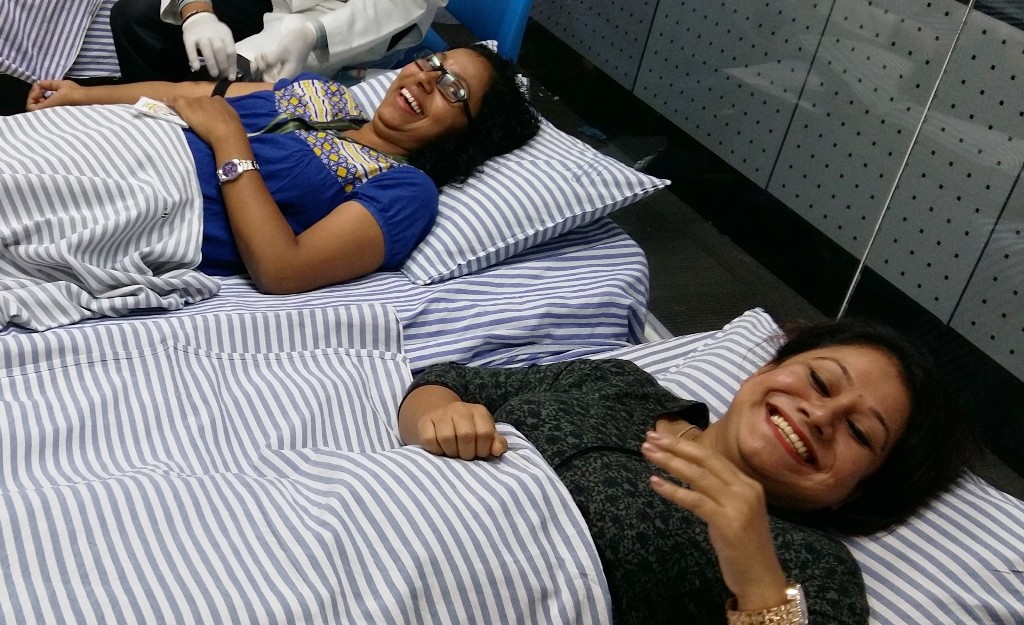
Blood and Blood products are needed 24 hrs a day, 365 days a year- for emergencies, surgeries, organ transplants, to treat burns, injuries, heart disease, thalassemia, sickle cell anemia and many other medical conditions. Transfusion is the only option for survival for many patients, but many patients do not have access to safe blood on the shelves when they need it the most. Blood Availability depends on the selfless and heroic act of people who donate blood- the most precious gift of life.
At Rakta Kranti, Sankalp has a very dedicated and self motivated team, which is constantly working hard to reach out to people and disseminate the knowledge and goodness of voluntary blood donation. There are three main areas of work for the team to focus on:
1. Getting donors
The team is responsible for ensuring that the maximum planned number of donors attend and donate blood. Depending upon what population segment is expected for the drive, as the publicity materials are made accordingly. For e.g. If the target is residential community, then it is best done on holidays. If the segment is educational institutions, then it has to be done keeping exam schedules in mind. Similarly, a camp for the office goers may be held on a working day at the work place to make it convenient for the donors. Once the team has decided on holding the camp, prospective donors need to be contacted and persuaded to come to the camp. A communication plan is designed accordingly. IEC Materials- Banners, Posters are displayed, Email blast- mailers are sent across, floor talks and open sessions are done to motivate donors. It generally evokes better interest. SMS campaign has also become an integral part of the publicity campaign. After the camp, thank you note is sent across to the organizations. Well planned and organized drives with focus on quality is what we promise to the donors.
2. Working with our partners
The team of Rakta Kranti, interfaces with stakeholders like the blood banks, organization, authorities etc. The team needs to keep the blood bank updated with the time and venue that have been chosen. A list of requirements is sent across to the organization along with the material, staff list and vehicle no. by the team so that we have all the necessary clearance on the day of the drive to set up the camp.
3. Camp Management
The team has to reach an hour before the camp is scheduled to start. Along with the help of the partnering blood bank's resources, the Sankalp coordinators set up the various areas for:
- Registration
- Waiting
- Medical check up
- Donation
- Post donation area for refreshments
Site management coordinators need to guide the donors to feel them relaxed. They ensure that people do take rest and refreshments after donation. In case there are any complications, it is the prime duty of the coordinator to ensure that the donor is attended by the Medical officer who is present for the camp. The reaction is captured and followed up the next day or unless the donor has totally recovered.
“Rakta Kranti has always planned to organize Blood donation drives in the time of shortage, and does not focus on the days of national importance, when there are too many drives happening across the city. This helps in better management of the supply of Blood.”

Blood knows no caste, creed, color, race or religion. Rakta Kranti aims to meet the requirement of the precious drug of Blood by organizing voluntary blood donation drives, but with a strict quality control and very efficient and quality oriented Blood Banks.
As an individual I feel more responsible now! It is amazing to work with such a group of dedicated individuals whose tireless exertion, commitment and passionate concern is making difference in the lives of so many people.
By Soumi Datta
